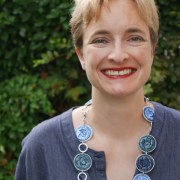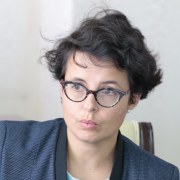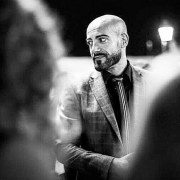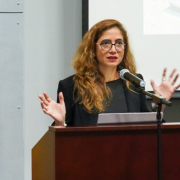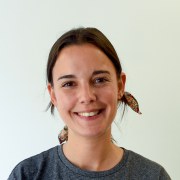Creating unexpected narratives
Museums are condensed reality. The fact that reality loses its context when displayed in a museum is compensated by the possibility of creating new narratives with pieces of reality that are normally distant or disconnected in the real world.
This workshop is an original narrative generator game. Participants will receive cards with content, clues and challenges and will use them to create unexpected narratives around a common subject. These exercises will show that in order to connect with audiences, science communicators and exhibition designers must recognise themselves as storytellers – not to distort the truth, but to help people connect with collections on a more human level, truly relevant to them. This will include speakers sharing short stories that raise questions about the advantages and disadvantages of using open/closed, singular/plural and chronological/thematic narratives.
Session speakers
Curator Text and Language
Staatliche Museen zu Berlin – Preußischer Kulturbesitz
Anna will share an example of an exhibition on a contentious topic which gains from including plural narratives. “Colonial Kamerun” at the Humboldt Forum in Berlin (opening in 2020) will offer different paths and perspectives around the objects and zoom into details of their histories to show how the different actors used various strategies to reach their objectives during German colonial rule.
International and Institutional Affairs
In science centres, we tend to prefer explicit and self-explanatory narratives as opposed to open ones. In her talk, Ines will present two pieces of headwear from the 17th century displayed at the Rijksmuseum and wonder what stories they suggest to visitors, that are not explicitly shown in the museum’s narrative. By giving these examples, Ines will reflect if and how science centres should/could offer more open narratives and what would be the benefits of that.
Director, Esplora & Chairperson National STEM Engagement Working Group
Clayton will talk about inter-generational narratives, in particular a project held by Esplora named "Grandma got STEAM", in which 5 grandmas (with a career in one of the areas of Science, Technology, Engineering, Arts and Mathematics) were chosen to work with a group of vulnerable youths and mentor them. In this process, a storytelling pack of cards was produced.
In her presentation Claudia will talk about two cases in which a science center (Parque Explora) participated in the creation of new narratives to tell stories that were not used to be considered typical of a science museum. The project called "The one thousand and five nights" with women displaced by the armed conflict in Colombia and the "Casa de la Memoria" Museum. She will talk about how the interaction of science communicators, historians, artists and the community involved served to build new languages. She will tell us which were the most difficult questions the team had to face and what tools were used to answer them.
Mariana will present a case study of a museum, whose narrative was based on a monography produced by a scholar specifically for that purpose. She will share the methodology used by the design team to transform the academic narrative into one that is more close to the visitor's approach to the subject.


